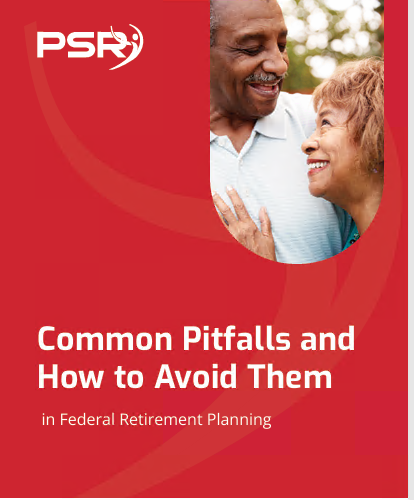Key Takeaways
- Even a small mistake in your federal retirement plan could cost you thousands of dollars in lost benefits or penalties.
- Understanding your retirement options now can save you from financial stress and ensure a secure future.
The High Stakes of Federal Retirement
You’ve worked hard as a federal employee, but retirement planning is no walk in the park. With numerous rules, timelines, and potential pitfalls, even the most seasoned federal workers can stumble. A single wrong move could end up costing you thousands. Sound dramatic? It isn’t—when we’re talking about pensions, Thrift Savings Plan (TSP) withdrawals, and health benefits, the stakes are high.
- Also Read: Divorce and Your Federal Pension—What Happens When You Split Assets and How It Could Affect Your TSP
- Also Read: What Happens to Your Federal Benefits After Divorce? Here’s the Lowdown
- Also Read: The Best FEHB Plans for 2025: Which One Fits Your Lifestyle and Budget the Best?
Thrift Savings Plan: More Than Just a Nest Egg
Let’s start with the Thrift Savings Plan (TSP). It’s more than just a retirement account; it’s your financial lifeline. The TSP offers a tax-deferred or tax-free growth option depending on whether you choose the traditional or Roth plan. But here’s the catch: The TSP’s withdrawal rules can trip you up if you’re not careful.
If you’re thinking about withdrawing early (before age 59½), be prepared for penalties. Unless you qualify for one of the limited exceptions, the IRS will slap a 10% penalty on early withdrawals, plus you’ll have to pay income tax on the funds from a traditional TSP. That’s why understanding the exact rules around TSP withdrawals is critical—especially in 2024 when catch-up contributions and other provisions under the SECURE 2.0 Act are in full effect.
Another key aspect is RMDs (required minimum distributions). If you’ve turned 73 (or will this year), you’re mandated to start taking distributions. Missing these could lead to a penalty of up to 50% on the amount you should’ve taken. Ouch, right?
Timing Your FERS Pension: Don’t Leave Money on the Table
The Federal Employees Retirement System (FERS) offers a generous pension, but timing is everything. Retiring at the right moment could be the difference between maximizing your benefits and leaving money on the table. For most federal workers, retirement at age 62 comes with a bonus: a 10% increase in your pension. This incentive exists to encourage workers to stay in service longer.
On the flip side, if you decide to retire before reaching age 62 under the Minimum Retirement Age (MRA) +10 provision, your pension will be reduced. The reduction is steep—5% for every year you retire before 62. So, if you retire at 57, your pension could be 25% lower than if you waited until 62. That’s a permanent reduction, not a temporary setback.
If you’re planning to take advantage of the FERS Special Retirement Supplement, which provides income until you qualify for Social Security at age 62, make sure you understand how it’s calculated. It’s designed to replicate what you’d receive from Social Security but only lasts until you hit age 62, when Social Security kicks in.
Health Benefits and Medicare: Don’t Miss the Enrollment Window
Health insurance is another area where one wrong move can cost you big. Under the Federal Employees Health Benefits (FEHB) program, many retirees keep their health insurance, but failing to enroll in Medicare Part B on time could spell trouble. For federal employees turning 65 in 2024, enrolling in Medicare Part B is often critical if you want to avoid paying higher premiums later. While FEHB and Medicare together offer comprehensive coverage, the timing of your enrollment matters. Miss the window, and you could be hit with a lifelong penalty.
As of this year, FEHB premiums have increased by an average of 13.5%. If you coordinate FEHB with Medicare, you can limit your out-of-pocket costs, but failing to understand the ins and outs could leave you paying more than you need to.
Also, if you’re under the Postal Service Health Benefits (PSHB) program, things are shifting. The transition away from FEHB means new coverage details, and you’ll need to review your options during Open Season in November 2024 to avoid unpleasant surprises.
Survivor Benefits: Plan for Your Loved Ones
Don’t forget about your loved ones when planning your retirement. Survivor benefits are an essential component of your retirement plan, but they’re easy to overlook. When you retire, you can elect to provide a portion of your FERS pension to your spouse upon your passing. While opting for survivor benefits reduces your monthly pension, not providing this option could leave your spouse financially vulnerable.
The reduction is typically 10% of your pension, but if you pass without choosing survivor benefits, your spouse could lose their access to FEHB. It’s a decision you don’t want to take lightly.
The Cost of Divorce on Federal Benefits
Divorce can significantly impact your retirement benefits. If you’ve gone through a divorce, the division of your federal retirement benefits, including your FERS pension and TSP, could be mandated by a court order. This is known as a Qualified Domestic Relations Order (QDRO). You’ll want to ensure all paperwork is in place and correctly processed by your human resources department. Failure to do so could delay or reduce the distribution of your retirement benefits.
Also, remember that your former spouse may have claims to your FEHB coverage or survivor benefits. Divorce complicates these benefits, and not addressing them now could lead to costly surprises later on.
Early Retirement: Weigh the Pros and Cons
Thinking of retiring early? While it might be tempting, especially after decades of service, it’s not always the smartest financial decision. As mentioned, the MRA+10 option allows for early retirement, but with heavy penalties if taken before age 62. Additionally, retiring early could mean forfeiting other benefits, like the FERS Special Retirement Supplement or the opportunity to maximize your TSP.
Leaving the workforce too soon can also disrupt your long-term healthcare coverage. If you’re not yet eligible for Medicare, you’ll need to ensure you have sufficient coverage through FEHB, and with rising premiums, the costs can add up.
Avoid These Common Pitfalls
If you take away one thing from this, it should be that planning matters. Whether it’s your TSP, pension, health insurance, or survivor benefits, every decision counts. Common pitfalls like missing Medicare enrollment, failing to maximize your pension, or ignoring the impact of divorce can lead to financial losses that are difficult to recover from.
By understanding the key components of your retirement benefits, you can make informed decisions that save you from financial headaches down the road.
Secure Your Future with Smart Planning
Retirement may seem far off, or perhaps it’s right around the corner. Either way, taking control of your retirement plan now is crucial. Your future self will thank you for avoiding costly mistakes today. The key is knowing the rules, sticking to a strategy, and keeping a close eye on critical deadlines.








